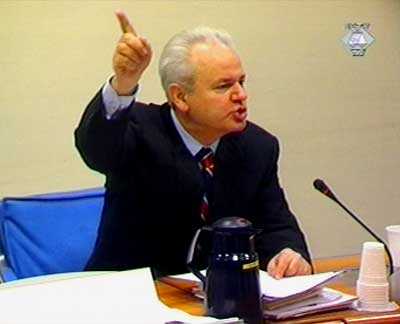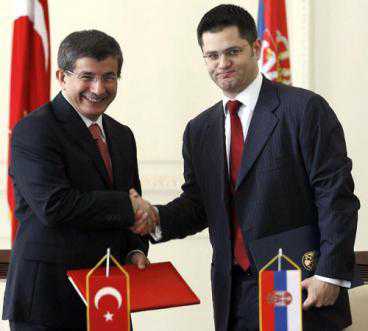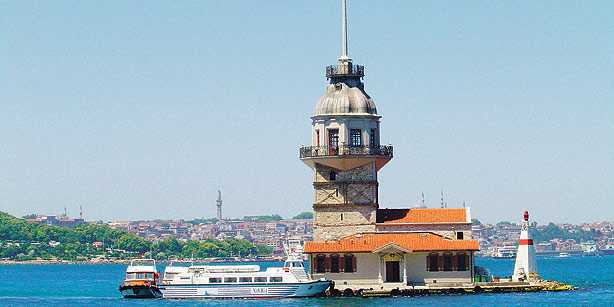
24 June 2009 Court cases have confirmed the key role of the media in spreading hatred in former Yugoslavia in the 1990s, yet no journalist has been tried.
By Nidzara Ahmetasevic
Trials for war crimes committed in the former Yugoslavia have been ongoing before local courts and the International Criminal Tribunal for former Yugoslavia, ICTY, for more than 15 years.
But although many indictments, verdicts and expert witnesses’ statements mentioned the key role of media in the war, no journalist or editor has been indicted to date.
For the first time, however, an opportunity has now appeared to try journalists who served the Milosevic regime in Serbia. See: Milosevic Media Face War Crimes Spotlight
Serbia’s war crimes prosecution recently said it intends to investigate whether grounds exist to open investigations into the role that certain media played during the war.
This idea has been prompted by statements of former soldiers and witnesses who appeared at trials in Belgrade for the crimes committed in Vukovar, eastern Croatia, and Zvornik, eastern Bosnia, a short time ago. Some of these volunteer soldiers said that they had decided to join up as a result of media coverage of the conflict.
One example of this media influence came in a piece of reportage broadcast by Serbian Radio and Television, RTS, in autumn 1991. This showed a young woman, dressed in uniform and carrying a rifle, among a party of volunteers.
Asked what she was doing among the volunteers, she said she had decided to go to war after watching TV reports on events in Vukovar. She had left behind three children.
Expert witnesses, who appeared at several trials conducted before the ICTY concluded that media propaganda prompted many people to fight.
Professor Renaud de La Brosse, from the University of Reims Champagne-Ardenne in France, in a report presented at the trial of Slobodan Milosevic, said that some politicians had “deliberately made the media change its focus from the provision of information and entertainment to purely spreading propaganda, thus serving their goals”.
Disinformation, not information:
Court files contain abundant evidence of the important role some media played during the war. In his report of August 1992, Tadeusz Mazoviecki, the Special UN Commissioner for Human Rights, wrote that the deliberate spreading of rumours and disinformation formed a “crucial element of the current situation, greatly contributing to ethnic animosity.
“With a few exceptions, the national media in the countries I have visited aim towards presenting the news on the conflict and human rights violations in an upsetting manner. Consequently, the general public does not have access to reliable, objective sources of information.”
Mazowiecki compiled a special report on the media two years later, in December 1994. In it he wrote that the information published by the media in the former Yugoslavia primarily consisted of “nationalistic discourse and omnipresent insults and offences aimed at other peoples”.
At the request by the Hague Prosecution, during the Milosevic trial, de La Brosse delivered a report entitled “Political Propaganda and the ‘All Serbs in one Country’ Project: Consequences of Using Media as an Instrument of Ultra-nationalistic Goals”.
Among other things, the Professor determined that “the atmosphere of distrust and animosity towards other peoples, fed by various fears and extreme nationalism for ages, gradually started manifesting itself in all republics in the former Yugoslavia from the late Eighties”.
While De La Brosse focused on Serbia in the Milosevic era, he suggested politicians used the media in the other republics in much the same way during the war.
“The authorities in each republic tried to control the media on their territories; particularly the television stations,” he said. “They turned the media into the instruments of their regime propaganda, whose aim was to ‘bring over’ the general public to their political ideas and actions.”
British author Mark Thompson drew similar conclusions in his book “Forging War: The Media in Serbia, Croatia, Bosnia and Hercegovina”. He later appeared as a prosecution expert witness at the trial of Momcilo Krajisnik. His report and testimonies mainly focused on the situation in Bosnia and Herzegovina.
Thomson wrote that in early 1992 the Serbian Democratic Party, SDS, “successfully gained control over the media on its territory, using it to scare the Serbian population… telling them that they would be exterminated and persuading them that the Croats and Bosniaks had genocidal intentions.
Describing how the SDS gained control over the media in Bosnia, Thompson said that this was done in stages. The first consisted of a drive to ethnically divide up Radio Television of Sarajevo, as well as attacks on the daily newspaper, Oslobodjenje. Taking control of the transmitters in Bosnia and Herzegovina, which began in August 1991, was another important step.
Speaking of the media and its uses as a propaganda instrument in the war, Thompson said many outlets acted as official “megaphones”,. The proper role of the media is to provide space for discussion and debate and “make relevant information available to the public, enabling it to make informed decisions on issues of concern,” he said.
“[But they were megaphones. They were just political tools used for conveying certain messages”, Thompson said.
Serbian propaganda the most extreme:
The relations between the media and politics are mentioned in several ICTY indictments. One is the indictment against Milosevic, which alleges that he “controlled, manipulated and used Serbian media… with the aim of spreading excessive and false messages on ethnic conflicts initiated by Bosnian Muslims or Croats targeting Serbs, in an attempt to create an atmosphere of fear and animosity among the Serbs who lived in Serbia, Croatia and Bosnia and Herzegovina.
“This largely contributed to the deportation of the majority of the non-Serbian population, especially Bosnian Muslims and Bosnian Croats from their homes in parts of Bosnia”.
De la Brosse cautioned against considering the role played by the media in Serbia, Croatia and Bosnia as equal.
“If we compare Serbian, Croatian and Bosnian nationalistic propaganda, we can conclude that the first one exceeded the two others by its scale and content of media messages,” he said.
The indictment against Krajisnik mentions the control of media in the section referring to a joint criminal enterprise.
It alleged that the media “supported, instigated, enabled and participated in spreading information among Bosnian Serbs about the threat of being tyrannized by Bosnian Muslims and Bosnian Croats, telling them that the territory on which Bosnian Muslims and Bosnian Croats live actually belongs to Bosnian Serbs; spreading information with an aim of generating fear of, or animosity towards, Bosnian Muslims and Croats among Bosnian Serbs… and ensuring their support and participation in achieving the goals of the joint criminal enterprise”.
The allegation that the media were used as “megaphones”, as Thompson said, is supported by the fact that the SDS established a Committee for Mass Communications in October 1991. This information can be found in ICTY documents. This body was tasked with developing plans to establish a news agency, daily newspapers and choose journalists loyal to the SDS’s goals.
Dorothea Hanson, an expert who appeared at the Krajisnik trial, described how the various “crisis committees” established on Bosnian Serb territory controlled radio stations and other media outlets.
Use of the media for propaganda purposes was included in the indictment issued against the Bosnian Serb leader Radovan Karadzic. This alleges that he “substantively contributed to the goal of the permanent extermination of the Bosnian Muslims and Croats from the areas controlled by Serbs”, among other things, by “spreading, instigating and/or enabling propaganda distribution”.
The role of the media is mentioned also in the indictment issued against the Bosnian Croat Jadranko Prlic, and others. This alleges that, following the establishment of the Bosnian Croat statelet, Herceg-Bosna, in November 1991 and particularly beyond May 1992, the leadership “became involved in permanent and coordinated efforts aimed at establishing domination and ‘Croatising’ the municipalities that were allegedly parts of Herceg-Bosna,” and to that effect, “the authorities and forces of Herceg-Bosna gained control over the media, inflicting Croatian ideas and propaganda”.
Impacts on ordinary lives:
Testimonies by victims who appeared at war crime trials reveal how ordinary citizens interpreted the propaganda broadcast over the media.
The media was frequently mentioned before the War Crimes Chamber of the Court of Bosnia and Herzegovina. For example, Redzep Zukic, a witness at the trial of Nikola Kovacevic, a former member of the Serbian armed forces from Sanski Most sentenced by the Court of Bosnia and Herzegovina to 12 years’ imprisonment, recalled how “radio Sana broadcast offensive songs and called Muslims offensive names”. It also called on Muslims to “display white flags on their houses” in 1992, he said.
Enes Kapetanovic, who appeared at the trial for crimes committed in Omarska detention camp, told a similar story.
“In late April 1992, after the Serbs gained control over Prijedor, they informed us via the media every day that we had to wear white bands around our arms if we wanted to show we were loyal to the new authorities. All of us, adults and children alike, had those bands around our arms,” Kapetanovic said.
Witnesses at the trial of Gojko Jankovic, sentenced to 34 years’ imprisonment for crimes in Foca, said the media in Montenegro also issued calls for volunteers to go to the battlefields in Bosnia during April 1992.
The indictments against members of the Army of Bosnia and Herzegovina, on the other hand, rarely mention the role of media.
According to Thompson, the propaganda dictated from Sarajevo was not of the same character as that which came from Belgrade or Zagreb.
Nevertheless, propaganda existed, considering that the then editors of public broadcast services in Sarajevo, like their colleagues in Belgrade in Zagreb, were appointed on the basis of their political affiliation and not as a result of professional standards.
Although the role of media was often mentioned before the ICTY and is now often brought up in trials before local courts, no indictments have been filed, as has been stated. Asked why no indictments have been filed, Hague officials answer that there is not sufficient evidence on the role of media to proceed.
Nidžara Ahmetašević is BIRN – Justice Report editor. [email protected]. Justice Report is BIRN online weekly publication.
BIRN






